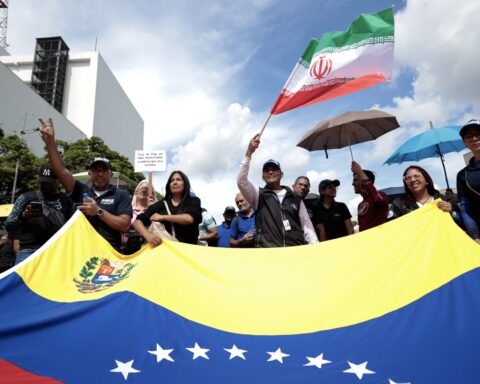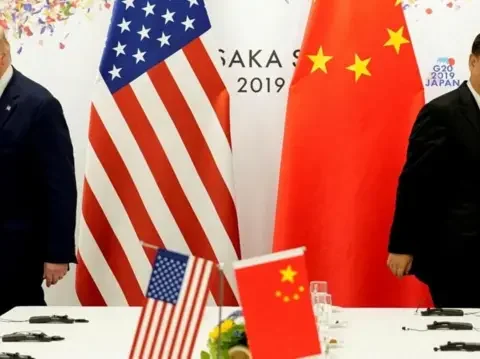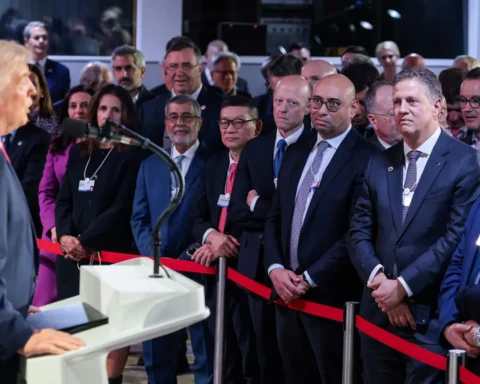Ever since the Internet was born, along with Big Tech, in the 1990s, the world has had a sense that we have entered a new era in global political economy. Many have tried to place a finger on what this transformation is all about. Perhaps the most famous among these critical thinkers is Shoshana Zuboff, who wrote that we are living in an era of “surveillance capitalism,” wherein our harvesting information from cyberspace also provides Google, Microsoft, and other tech titans the opportunity to rake in data about us that they process to create our digital profiles. These profiles are then used by them or their client corporations to manipulate us into purchasing products or are sold to the state, which has an interest in keeping tabs on us.
Another important effort to define what was new came from Mckenzie Wark, who wrote in her influential Hacker’s Manifesto that the central contradiction of the new age was no longer that between capital and labor but between “hackers,” or the sources of innovation and creativity who wanted to keep information free, and the “vectoral ruling class” that sought to expropriate knowledge and turn it into a commodity.
Acknowledging his debt to both Zuboff and Wark, Yanis Varoufakis says that while they have important insights, they have not followed these to their logical conclusion: that capitalism as a distinct mode of production has been superseded. The synthesis that Varoufakis offers is what he calls “technofeudalism.” He does not say that capitalists no longer matter. They do, and they still engage in extracting surplus value or profit from workers in the process of production. But they themselves are subordinate to a new elite, the “cloud capitalists” or “cloudalists,” who have privatized the commons that was cyberspace and now control access to it. The cloudalists, among the most powerful of which are Google, Microsoft, Apple, Amazon, and the chipmaker Nvidia, control the globe-spanning information highways that are sustained materially by massive data centers located in different parts of the world. Accessing these intermeshed networks in cyberspace known as the “cloud” is now vital for the traditional or “terrestrial” capitalists to get access to you to sell their products, and these corporate gatekeepers make their money by charging these capitalists rent. Without access to the net, capitalists cannot make profits, and, very much like the feudal lords of yore who controlled land, the cloudalists’ monopolistic control of the cloud allows them to directly or indirectly collect, from the “vassal capitalists” and anyone who uses the net, “rent,” or income that is not subject to the market competition on which profit depends.
Cloud Proles and Cloud Serfs
As in capitalism, it is not the cloudalists or the terrestrial capitalists that produce value. The real sources of value are what Varoufakis calls the “cloud proles” and the “cloud serfs.” The cloud proles are the service workers at Amazon and other Big Tech facilities who are nonunionized, paid meager wages, and in constant threat of being displaced by robots and Artificial Intelligence. But these proles’ labor provides only a fraction of the value extracted by the cloudalists. It is the cloud serfs that create most of that value. Following Zuboff, Varoufakis says the cloud serfs are most of us: we provide raw material for the cloud whenever we do a Google search, post a photo on Facebook, or order a book on Amazon, material that is then processed into information that the cloudalists and terrestrial capitalists can use to develop ever more sophisticated marketing strategies to get us to part with our dollars. The distinguishing characteristic of cloud serfs is they are doing unpaid work for the cloudalists even if they don’t realize it. As he remarks, “The fact that we do so voluntarily, happily even, does not detract from the fact that we are unpaid manufacturers—cloud serfs whose daily self-directed toil enriches a tiny band of multibillionaires.”
We are, in other words, the unsuspecting marks of the ultimate scam.
The Rise of Cloud Capital
Varoufakis traces the rise of the cloudalists to the central banks’ creation of money with zero or below zero interest in the aftermath of the Great Recession of 2008 and, later, during the COVID 19 pandemic, to stimulate production and consumer spending. But, with the big fall in demand, most corporations did not invest the loans the private banks channeled to them, instead using them to buy back their own corporate stocks at low prices or invest it in real estate. But cloudalists like Jeff Bezos, Elon Musk, and Mark Zuckerberg used the central bank money rerouted to them by the big banks to massively invest in expanding and monopolizing the cloud. The cloudalists
mopped up many of the billions sloshing around within the financial system. With them, they paid for server farms, fibre optic cables, artificial intelligence laboratories, gargantuan warehouses, software developers, top-notch engineers, laboratories, promising start-ups and all the rest. In an environment where profit had become optional, the cloudalists seized upon the central bank money to build a new empire.
Resistance in the Era of Technofeudalism
The central contradiction in the technofeudal era has passed from the conflict between labor and capital to that between the cloudalists and their cloud serfs and cloud proles. Varoufakis is my colleague in the international council of Progressive International (PI), and he has helped inspire PI’s partnership with the Switzerland-based UNI Global Union to organize annual one-day strikes by Amazon workers in many countries. According to him, if these actions could be coordinated with Amazon users, so that a critical mass of them are convinced not to visit the Amazon website for even one day, the impact would not be minimal: “Even if were only mildly successful, causing say a 10 percent drop in Amazon’s usual revenues, while Amazon’s warehouse strike disrupted deliveries for 24 hours, such action might prove enough to push Amazon’s share price down in ways that no traditional labor action could achieve.”
But building a strong resistance movement to the cloudalists will have to go beyond such momentary alliances. “To stand any chance of overthrowing technofeudalism and putting the demos back into democracy,” he writes, “we need to gather together not just the traditional proletariat and the crowd proles but also the cloud serfs and, indeed, some of the vassal capitalists.”
Varoufakis might have added to this “grand coalition” the communities whose lives have been disrupted by Big Data. As a recent New York Times article reports,
As data centers rise, the sites — which need vast amounts of power for computing and water to cool the computers — have contributed to or exacerbated disruptions not only in Mexico, but in more than a dozen other countries…In Ireland, data centers consume more than 20 percent of the country’s electricity. In Chile, precious aquifers are in danger of depletion. In South Africa, where blackouts have long been routine, data centers are further taxing the national grid. Similar concerns have surfaced in Brazil, Britain, India, Malaysia, the Netherlands, Singapore and Spain.
Communities forced to host data centers, in fact, are now the cutting edge of resistance to Big Tech. In country after country, notes the report, “activists, residents and environmental organizations have banded together to oppose data centers. Some have tried blocking the projects, while others have pushed for more oversight and transparency.”
Clarification Needed
I have a few comments on some of the key elements of Varoufakis’ paradigm, and these are advanced in a critical but friendly spirit:
First, his conceptualization of the proles appears to include only the low-paid service workers. What about the information engineers and other knowledge specialists and their office staffs? He talks about the role of the “technostructure” in late capitalism in the early part of the book, but it seems he includes the different layers of this stratum in management during the technofeudal era rather than in labor, though as Mckenzie Wark stressed, technical innovators or “hackers” contribute to the value that is expropriated by the Big Tech elite.
Second, there is some ambiguity in the book when it comes to who exactly has the ultimate power in the technofeudal power structure. In most of the book, the billionaire leaders of the Big Tech firms like Jeff Bezos, Elon Musk, and Tim Cook, are portrayed as the power elite. But he also writes about the “financial uber-lords [who] rival the cloudalists—three U.S. companies with powers exceeding those of private equity and all terrestrial capitalists put together: BlackRock, Vanguard, and State Street. These three firms, the Big Three as they are known in financial circles, effectively own American capitalism.” This is due to the controlling shares they own in the most strategic corporations. So, do we have a split power elite with blocs that have different sources of power? Are we really in a post-capitalist era or merely in another (higher? hyper?) stage of capitalism?
This relates to my third point, which is that Varoufakis must do more explaining of how the dynamics of technofeudalism are really distinct from those of monopoly capitalism.
Economists, both progressive and orthodox, have long contended that in a situation of monopoly or oligopoly, as in the car industry or pharmaceuticals, the key players derive profit but they also extract rent, which is profit in excess of what would be available if there were significant market competition. As in the car and drug industries, there is in the Big Tech sector both oligopoly and fierce competition, much of it “non-price competition,” the dynamics of which results in both profit and rent. Are not the dynamics of cloudalist competition really the same? How does monopoly capitalist rent differ from technofeudal rent? How do the earnings of Google, for instance, differ from those of non-Big Tech oligopolists like JP Morgan, Johnson and Johnson, and Toyota, except perhaps in terms of volume?
My last point has to do with the changing relationship between the state and the cloudalists. In the book, the state mainly appears as an enabler of the rise of the cloudalists via the central banks’ provision of free money in the aftermath of the Great Recession and during the pandemic. Recent developments, however, have seen the state disciplining Big Tech and curbing its freedom of maneuver. Under both the first Trump administration and Biden’s presidency, Washington imposed fairly restrictive measures that cut into the profits of the cloudalists, like the sharing of advanced information technology with Chinese corporations. For instance, export controls on advanced AI chips imposed by Biden in 2022 have drastically reduced Nvidia’s share of the Chinese AI chip market from 95 percent to 50 percent, resulting in the loss of billions of dollars. Under the second Trump administration, Washington has moved even more drastically, using the imposition of tariffs to force cloudalists like Apple to move key parts of their global supply chains to the United States, though this would involve major costs and disruptions. But acknowledging the state’s commanding role, Apple CEO Tim Cook stated recently, “The president wants more [production] in the US…Apple also wants more in the US.”
On Accurately Naming the Beast
Varoufakis does note the more prominent role of the state represented by these latest developments. However, he does not fully draw out their implications for what he has portrayed as the immense power of the cloudalists and what lies ahead for them. From the enabler of the cloudalists portrayed in Technofeudalism, the relationship between the state and Big Tech in the United States is becoming more like that between the Chinese Communist Party regime and China’s data titans like Alibaba and Baidu, as the geopolitical rivalry heats up and national security concerns, not profitability, take center stage. China’s political economy has been called state capitalism or political capitalism (with only the Communist Party of China clinging on to Deng Xiaoping’s definition of it as “socialism with Chinese characteristics”). Varoufakis contends that the choice of a name is critical to understanding the essence of a political economy. I agree. But to underline what is likely to be become an even bigger directive role for the state in the political economy of the United States and the increasing subordination of profitability to national security, I think we need a better word than “technofeudalism.” (This would have the added benefit of avoiding the subliminal association of the title to Friedrich Hayek’s classic anti-socialist neoliberal tract, The Road to Serfdom.)
Technofeudalism is a provocative piece of analysis, well-argued and well-written. And it is very accessible to those with little background in political economy or economics. There may be areas where I may not completely agree or points that I feel should be more carefully elaborated, but these should not detract from my judgment that this book by one of today’s leading progressive thinkers is a major contribution to understanding the times we live in.
*Walden Bello, a columnist for Foreign Policy in Focus, is the author or co-author of 19 books, the latest of which are Capitalism’s Last Stand? (London: Zed, 2013) and State of Fragmentation: the Philippines in Transition (Quezon City: Focus on the Global South and FES, 2014).
Source: https://www.counterpunch.org/2025/11/13/have-we-entered-a-new-feudal-era/






